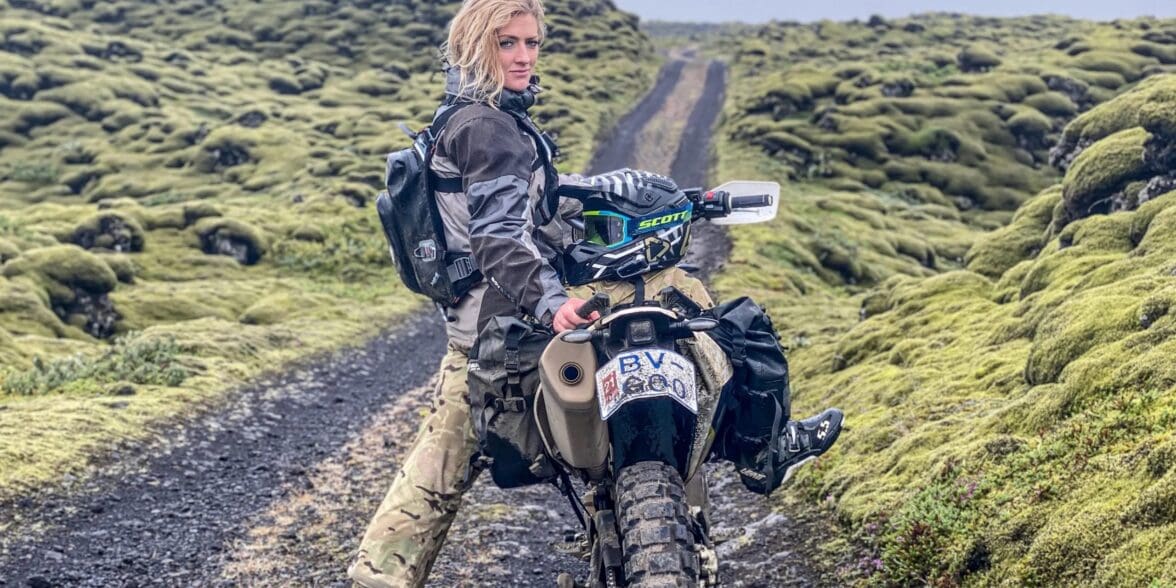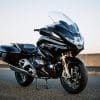On June 13th, I had an interview scheduled with a woman who I had already covered in an article here at wBW.
Her name was Vanessa Ruck – and she had just come out of the Tunisia Desert Challenge as the first woman to have ever competed in the competition (35th out of 55 bikes, no less).
This intrigued me – sure, hard enduro isn’t exactly known for the silver spoon treatment, but the first gal? In this day and age?
I had to chat with her about it.
A short series of scheduling later and I had the woman herself in front of me – and that’s when I realized.
Not only was Vanessa the most driven female I’d ever had the pleasure of meeting, but everything she did – every competition, every challenge, every tick of the list of hard-assery – she did in pain.
Real, sing-yourself-to-sanity pain.
What does a woman like Vanessa do after a french kiss with a car, seven surgeries, and one of the more extensive rehabilitation therapy schedules I’ve ever seen?
She buys a motorbike and signs herself up for THE hardest style of riding known to our kind.
I’m itching to pick her noodle about anything and everything, so let’s dive in.
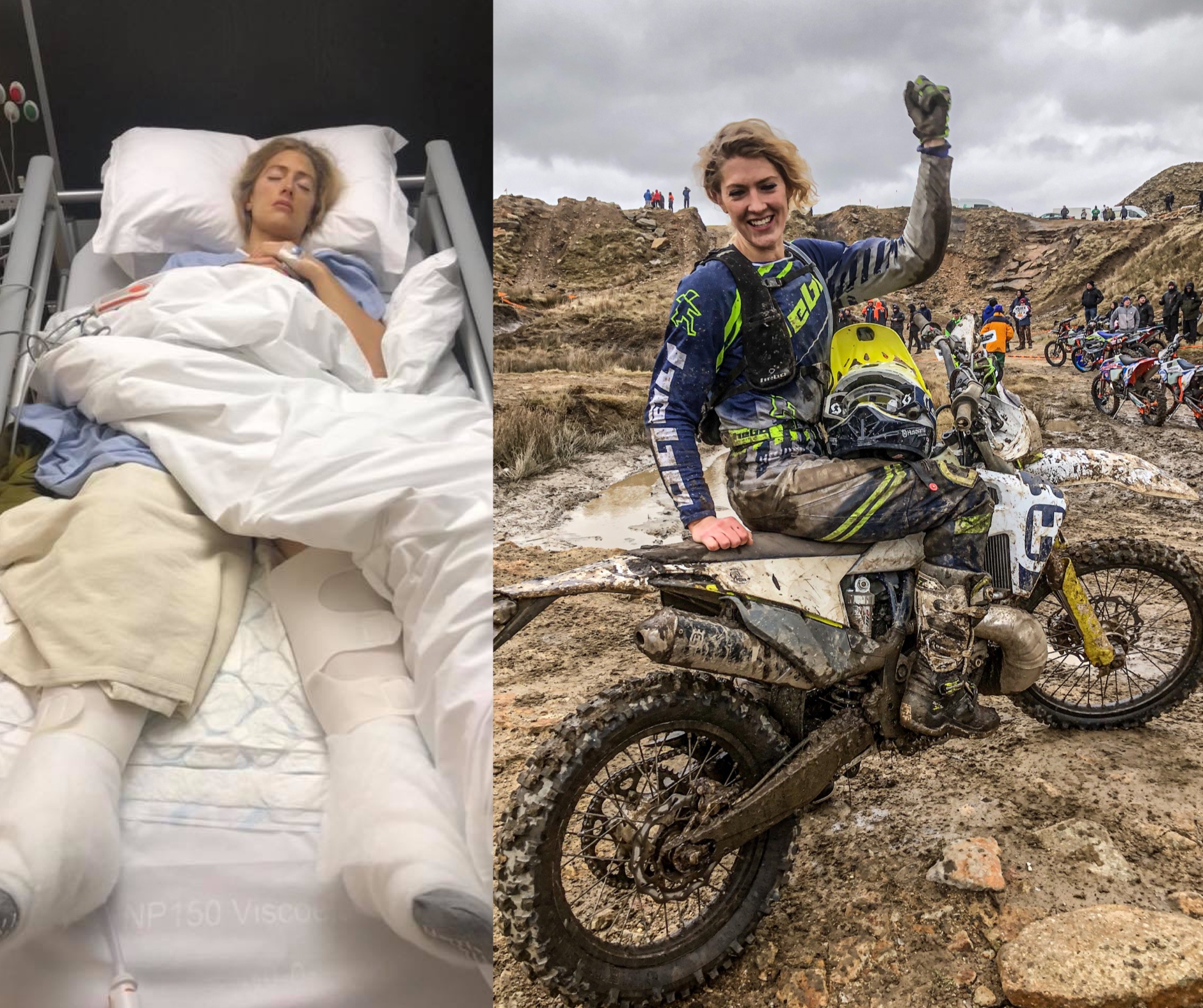
The accident that changed everything for you; tell us what happened.
So I was cycling. I was on the way to the wakeboarding lake to meet my husband and some friends – just a really normal Tuesday.
Traffic lights turned green, I carried on peddling through, and a car coming the other way decided not to stop.
I went straight into the side of the car, and life, in that moment, changed very dramatically.
Just to be clear; I was not a bleeding, scraped up mess on the side of the road – nothing like that. Obviously I was shaken up – I’d just been hit by a car – but the insane bit is that I was discharged later that night with a diagnosis of bruising…just bruising!
Since then I’ve had one surgery per year, spread across seven years. So it was just a constant kick in the face of going backwards, and it didn’t get easier.
With reoccurring surgeries, every time you go back into surgery, it gets harder. The expectation is all wrong – you think you get the hang of recovering, and then the old tissue is dug into again and the mental battle gets worse and worse.
My mental health recovery has always been harder than the physical, and I’m very open about that. I started with multiple health disorders and it took a lot of processing time to heal…there were some really dark days, and that’s the side of things that are normally invisible – even little things, like overcoming the trauma of fear of the road after an incident like that.
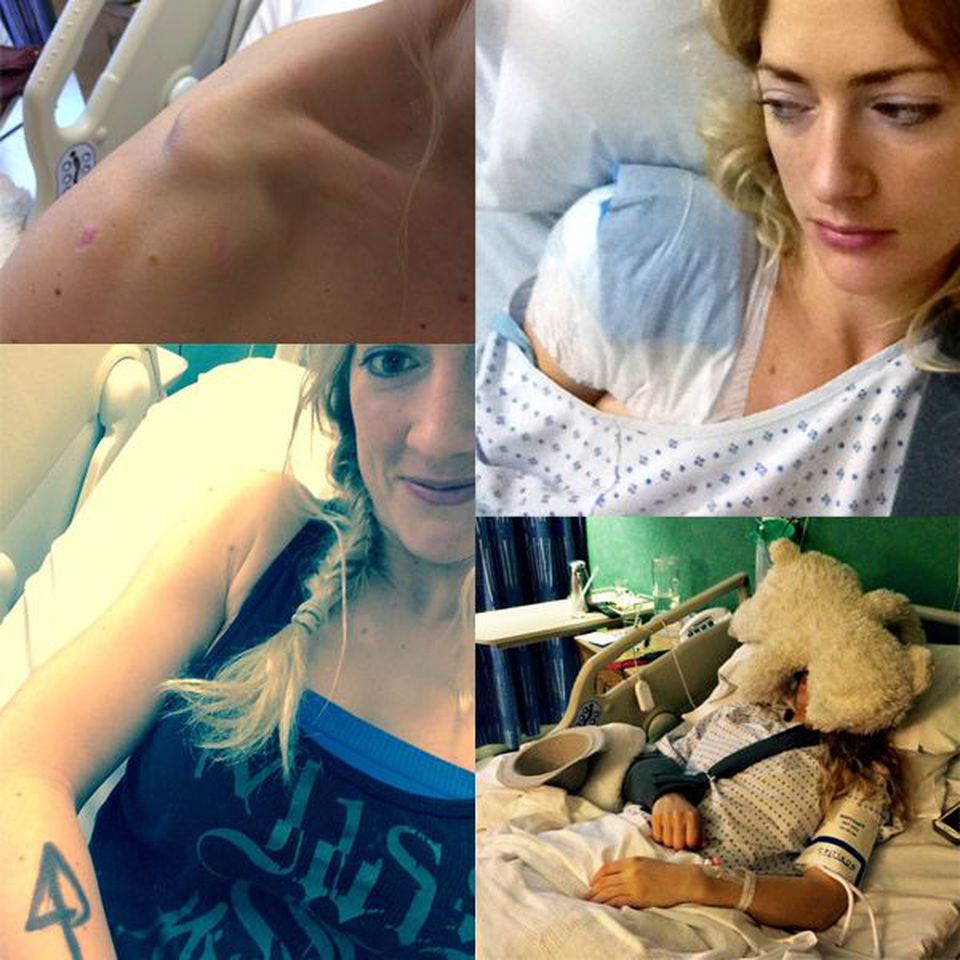
Seven surgeries in as many years. An insane testimony, given what you do today – but what blows my mind is that you had to convince the medical industry that you had more than bruising…?
It was ridiculous, and yeah, it was incredibly hard – because they’re telling you to trust the medical profession, They were being so inaccurate, messing me around and I was constantly being put in situations where that trust was being misplaced – but at the end of the day, you’ve gotta trust them because they’re the professionals.
So I’d just been hit by a car and I was being told I’d be ‘back to normal, back on my feet, boom, no problem,’ maybe just have a little bit of rest at home.
As I listened to their advice, though, I realized the pain wasn’t changing – the swelling wasn’t going down. So, I went to see my GP again.
There’s totally an element of ‘the squeaky wheel gets fixed first’ to all this, and the shoulder was really the worst part (even though the hip ended up having five of the seven surgeries, it was dormant so wasn’t picked up at first).
The doctors’ answer to my pain was that I had ‘a little bit of a sore shoulder’ and I needed some steroid injections to get better.
Three steroid injections later, and nothing was improving; that’s when he said the next option was surgery, and he told me the procedure.
In the fine print, I was gonna lose at least 25% of my range.
25%.
I didn’t like this.
I saw another shoulder specialist – the second opinion. Before I’d even sat down, he asked me why I would refuse surgery – and I’m like, “I haven’t refused surgery.”
So yeah, loads of stuff like that.
That first incision was apparently ‘a little cleanup thing,’ which did jack all. Then after that, the second opinion did the right scans and actually looked at my shoulder properly – and that’s when my arm was diagnosed as ‘not attached to my shoulder’.
After 13 months? Insane.
My column collarbone was like 3mm up and 10mm back and you could bounce it around.
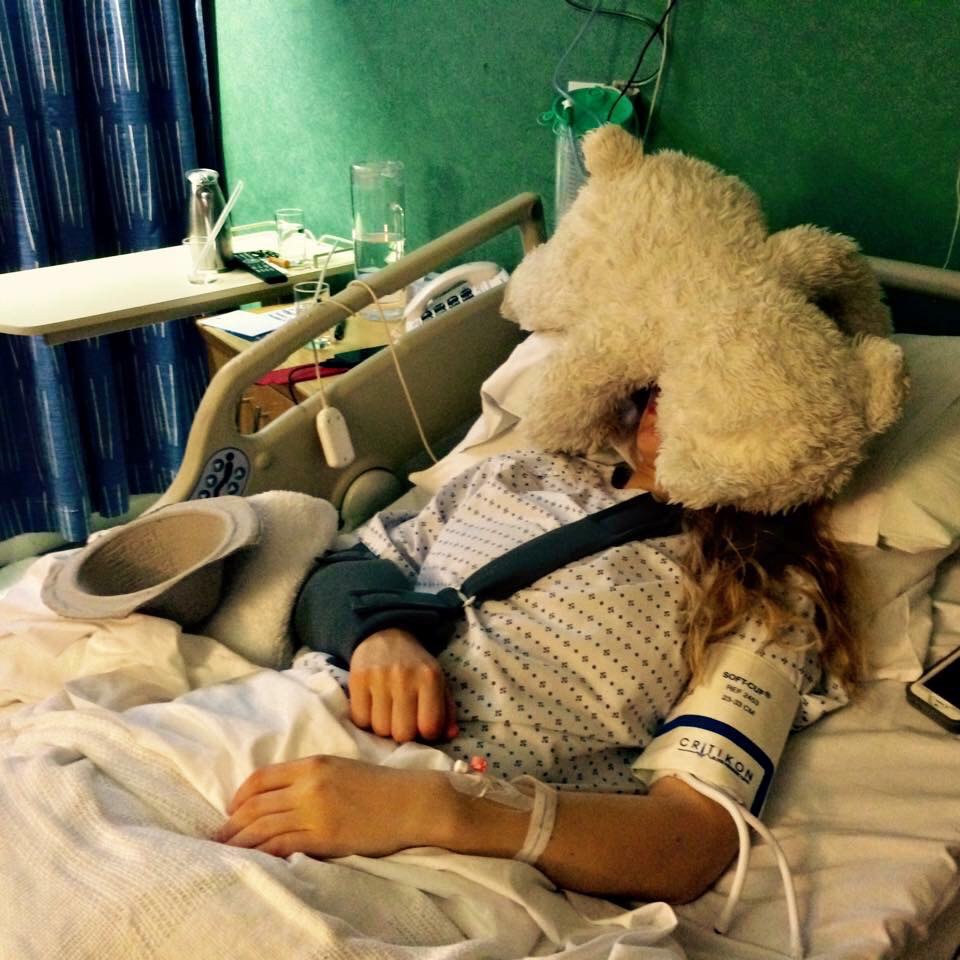
My arm was literally two inches longer – and that’s ‘just bruising’??
So we’re 13 months after the accident, and the shoulder has started to try to heal itself, my body doing exactly what incredible human bodies do, trying to adapt and cope.
That second surgery wasn’t just a recovery process; it was a complete rehabilitation back to how my body should sit, how the muscles should be – because in the 13 months everything had all adapted. It made the healing process a lot harder.
Meanwhile, I’m getting better with my shoulder, and it is also becoming more and more apparent that my hip is really not okay. At that point I’d taken the journey with the shoulder and I kind of had an idea of what was coming.
I decided to try and go and do some of the sports I used to do – that was the wake-up call, the pain. I was like, “wow, I’m not okay” – the hip was really bad.
Back in we go.
The first specialist? Laughed me out of his office, saying that there was nothing wrong with me (thankfully, he’s now retired so he can’t that to anybody else).
Since then, I’ve had stem cell treatment, bone work, soft tissue, ligament repair – all of the cartilage completely moved and rebuilt and reconstructed across five different surgeries (one of the big reconstructions, by the way, had to be done twice because my hip didn’t take for whatever reason).
Not going to lie, there were times where they were telling me I needed to have another surgery and I immediately started asking myself if I was making the pain up, like “maybe I don’t need the surgery. Maybe I can live with this.”
But no, I couldn’t. The process of being able to go from walking around right now (in a lot of pain), back to being totally immobile and bedbound (and still in pain), and then to the rehab schedule…it was absolutely exhausting.
There was one period of time where I was in osteo, shock, wave hydro, and physio three days a week for two and a half hours at a time, on top of a two hour commute into London, both ways per trip – and then a full day of work in the office PLUS THE ICING.
But you know what? You do what you gotta do – and if I didn’t do it, I wouldn’t have been back to the usual.
Funny…at this point was when I decided to get the motorbike.
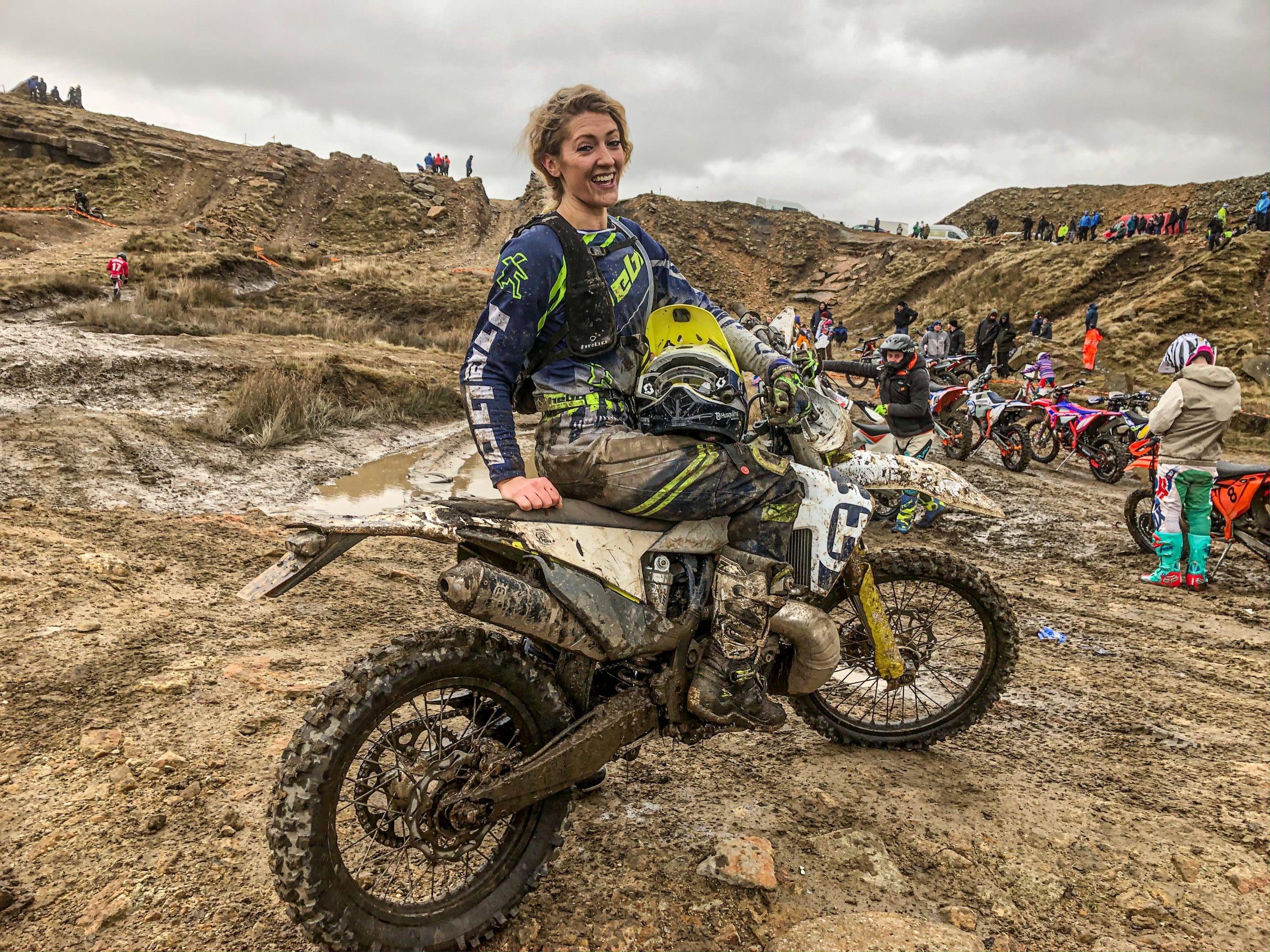
What’s been the biggest factor in getting your health back on track?
The biggest part…definitely mindfulness.
It goes a long way with fear, anxiety, even stress – and I really emphasize mindfulness in the UK school programs I do as a way to give back.
When I talk about mindfulness, loads of people think about, you know, sitting on the floor and humming with your hands folded, knees crossed, whatever.
I’m not the sort of person that’s gonna just sit on the floor and try and think of nothing. That method just won’t work for me, haha.
To me, mindfulness is all about the realization that we are in control of our thoughts and that we can have far more control of our conscious selves than I ever imagined could be possible.
By having control over ourselves, we also have more control over our subconscious thoughts – and our emotions are directly linked to our thoughts.
To recover from everything I’ve been through, I’ve kind of trained my thought process around my pain, to recognize the trigger thoughts that come into my mind
I’ll just go, “S***, my hip is really hurting right now,” and if I start with that as my initial thought and I let that thought stay in my mind, I spiral.
I’ll start to focus on the fact that it hurts so much, and it hurts again today, and it hurt yesterday, and why does it have to keep hurting, why does my body have to be so s***, I’m useless… It’s a freaking mind game, and now I’m upset and there was no benefit in me letting that thought stay.
If I catch these thoughts and I’m mindful, I’ll be like, “let’s focus on something else” – the birds singing, calling a friend, focusing on anything else.
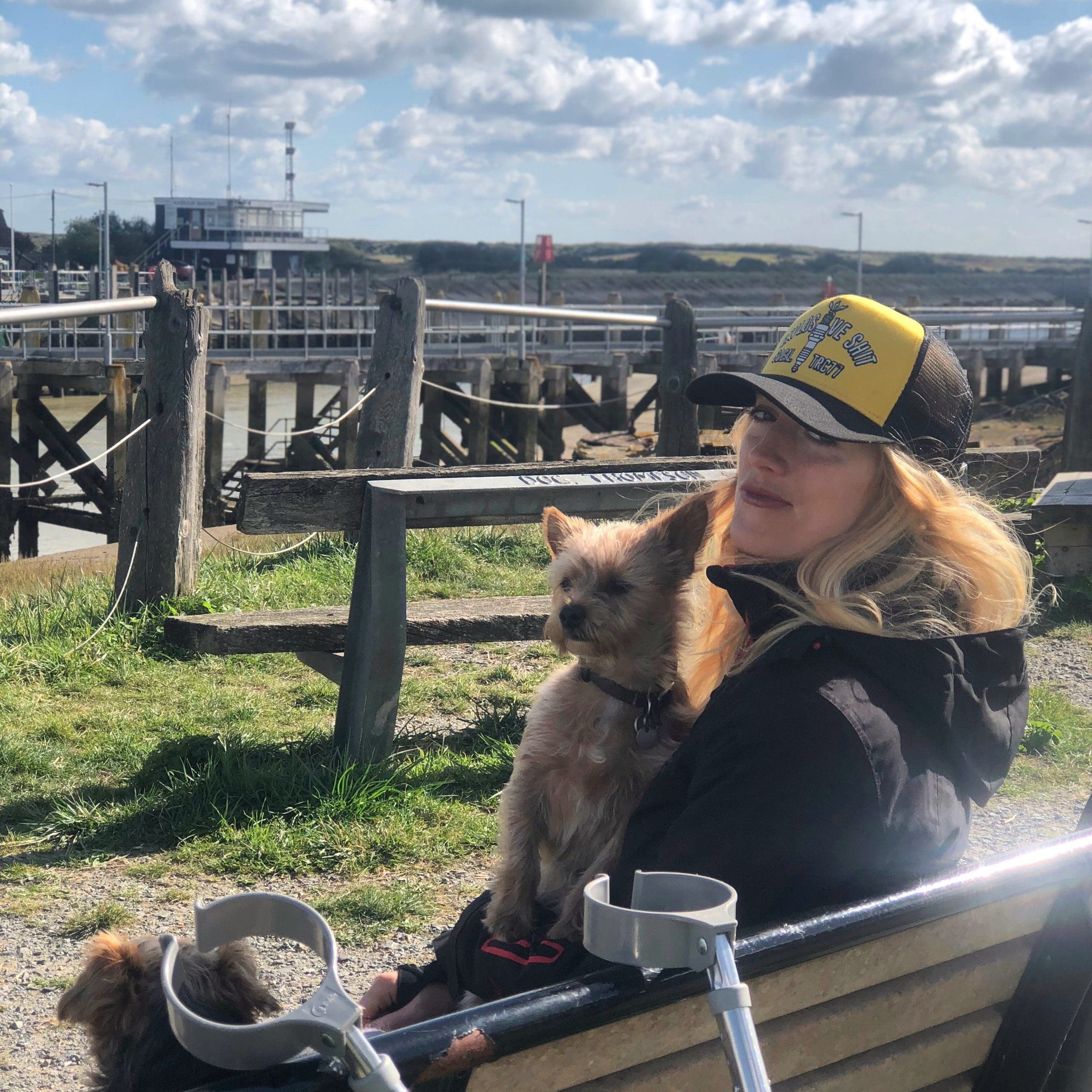
By focusing on anything else, we cut out the brain’s tendency to go worst-case scenario and jump into “what can I do in my control? I can’t get rid of it, this is my body – do I need to take another painkiller?… do I need to change what I’m doing? Sit down? Stand up?”
Ultimately, spiraling clouds judgement and judgement affects emotions – and when you’re in a scary situation, you can actually quite often rationalize the situation and work it out.
It’s also helped me hugely with getting on a motorbike. There’s an element of pure, stubborn, determination…the driver from that accident had taken a lot away from me already, she had a lot of control over my life from that moment.
But letting her stop me from doing something because I was scared was just ridiculous. I wasn’t going to let her determine that – I wasn’t gonna let that happen, and we can’t just bubble wrap our lif
The fact that it was an accident was really important to focus on as well. She didn’t get up that morning and go, ‘right. What time’s Vanessa gonna be at traffic light?,’ you know? Haha!
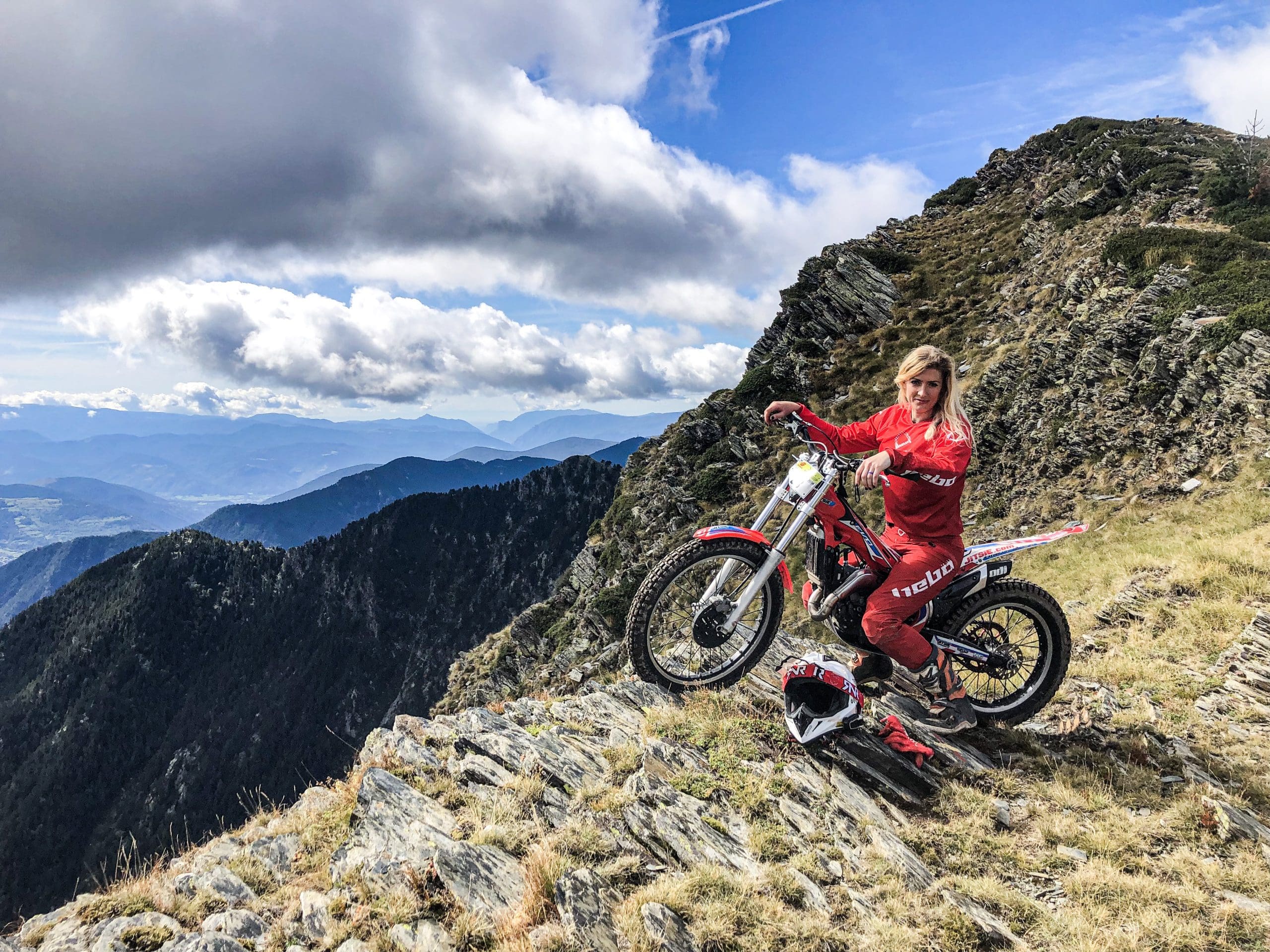
So this amazing drive that helped you to heal was also what drove you onto a bike, into all these competitions…do you have any goals when it comes to challenging yourself on your motorbike?
Think biggest goal for me is to prove to myself that I still can.
Since getting on a bike (which happened a clear five months after buying the thing because I was still in rehabilitation), I’ve realized that me pushing myself gives other people a lot of energy. That kind of helps drive my energy a bit; if I can fight through what I’m going through and deal with the pain that I live with – and if it helps us someone else – then that’s huge, being able to help someone else’s journey/life/battles.
At the end of the day, we all have really tough times; all that shiny, perfect stuff on social media? There’s so much of it, which is why I always try and share it all; some of my YouTube videos are crazy personal, and yeah, it makes me vulnerable…but I think because I am so open and all my cards are on the table, people are incredible and I very rarely get negative comments or anything like that.
Ultimately, with the racing, you can only grow outside your comfort zone – and if you never go outside your comfort, you are never gonna grow. Period.
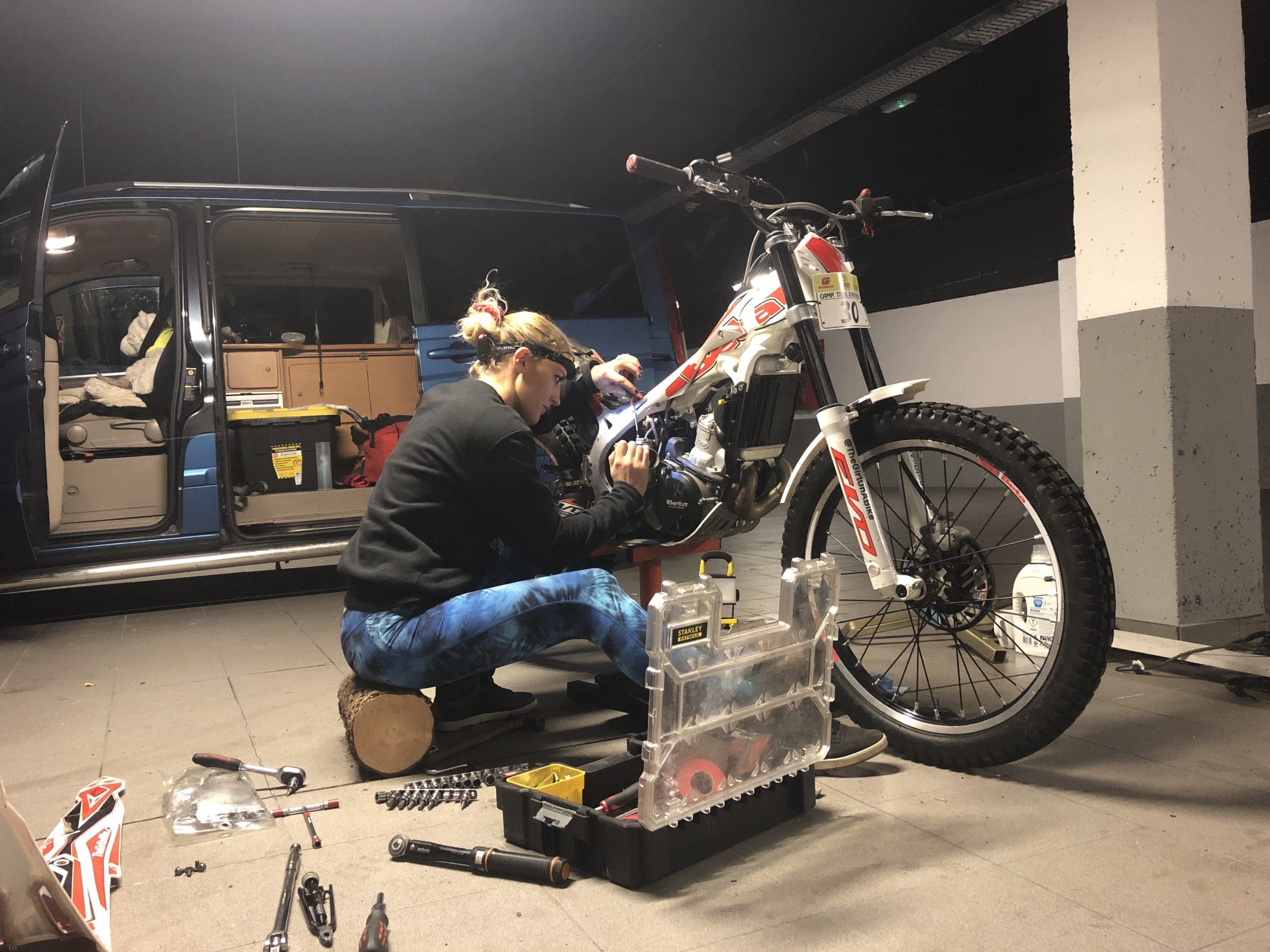
Any pet peeves as a professional biker?
I often get judged by how I look…
I’ve just got back from that European hog rally and this large principle dealer for Harley Davidson met me and actually gave me a ride back from the custom show on the back of his Harley and it quickly became apparent in the conversation afterwards that he didn’t think I knew how to ride…you know, me being this tiny little blonde girl with ridiculously long natural eyelashes.
(I mean, squealed on the back of the bike more because I thought I was going to die and because he rode like a f***ing lunatic…anyway).
The friend that I was with who was actually marketing team at Harley Davidson was like, “hang on a minute. You do know that she knows how to ride….right?”
And he was just like, looking me up and down and I’m just like, oh God, Vicky’s about to go on a rampage…which she did, talking about the fact that I do desert rallies and hard enduro and how I could probably out-ride most people at this rally – and his eyes get so big, haha.
A few minutes later and I’m actually sitting in one of his custom bikes, which is an absolute monster – 190 brake horsepower to the rear wheel; real, real, crazy.
I’m sitting there and he just randomly jokes, “you should do a burnout,” thinking obviously I wouldn’t know how.
At that point the bear had been poked so I was all like, “you really want me to do a burnout?”
And he’s all changing his attitude like, “do…do you know how to do a burnout?”
And I’m like, “of course I know do a burnout.”
At this point the man’s already challenged me to do a burnout so he’s not gonna back out – and I sure ain’t gonna back out, haha…
(For reference, all of the clothes rails and the shop of this H-D dealer tent are right in front of the bike, with like two and a half meters of space – and then past that are the phones, merchandise, and people are everywhere. Prime location for a burnout.)
The second I started up that bike there was a crowd – and Vicky’s like, “oh my God, ‘Nessa no, no, no, no…!”
I look to the dealer and I’m just like, “you sure you want me to do a burnout? Cause I will do one.”
And he just smiles and is like, “go on then,” obviously thinking I’m still not gonna do it.
So I turned it up, did the burnout.
The crowd went crazy, and for the next like four minutes, he didn’t know what to do himself. He was just like, “holy shit,” haha!
The balance of being underestimated is that I love that kind of energy of being able to just prove people wrong. Like, I work really hard to try and be a better writer to try and learn more, to try and understand more about bikes, as well as growing as a human and it’s just hilarious when people judge you by the cover and then you prove to them that you’ve actually put some work into it.
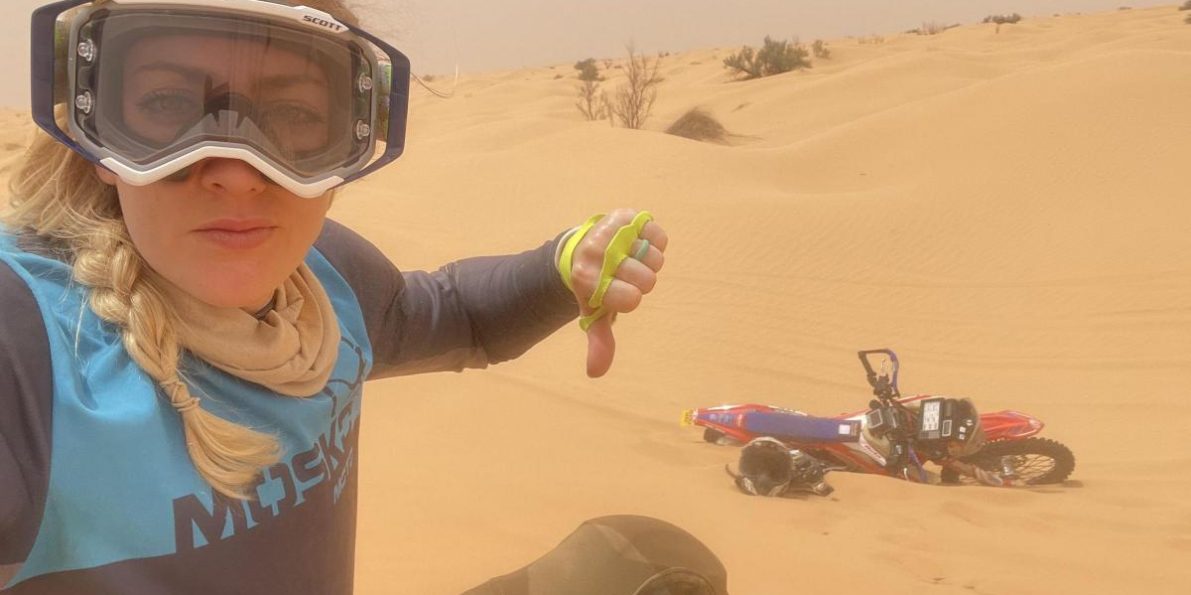
Speaking of work, your recent success at the Tunisia Desert Challenge (TDC) was insane – and now you’re gunning for Dakar?
For any hard enduro event, I’ll do it when I’m ready.
The amount of money and funds laying down – it’s a lot, and as much as events like the Dakar have a huge reputation, I’m also realizing that there are a lot of other races that are actually harder.
Take the TDC. I spoke to a lot of people in the challenge that have done Dakar – one guy had done Dakar 10 times on a motorbike and finished, finished 10 times…and he said day three of TDC was the hardest day of riding – ever – in his life.
Insane.
The difference is that the Tunisia Desert Challenge is an extreme rally raid, so it’s harder to remain, it’s got more complicated navigation, but no road liaison. So you’re doing a 450km-ish special test (which is the same as the Dakar length), BUT you’re not doing three/four hours of road at beginning and the end of the day. That’s the Dakar, they make you do the 7k road, on top of the special test, so it’s more about the endurance than the actual rider navigation skills.
I really enjoyed Tunisia, and hey – maybe I’ll do it again. Somehow sitting on the road doesn’t even sound that fun, haha!
All that being said (and despite being 35th of 55 bikes to finish at TDC and the only woman), the mental strain in preparation for the raid was brutal, absolutely brutal. I cried so much in a week – the pain on my hip, the pain of the endurance, the fear of it all.
I had two straight days where I had bike malfunctions and got stranded in the dunes. It was terrifying being out in the desert on your own – and I was the furthest of any motorbikes that got recovered, which I’m quite proud of, but wow. Yeah. That’s why I had to get recovered.
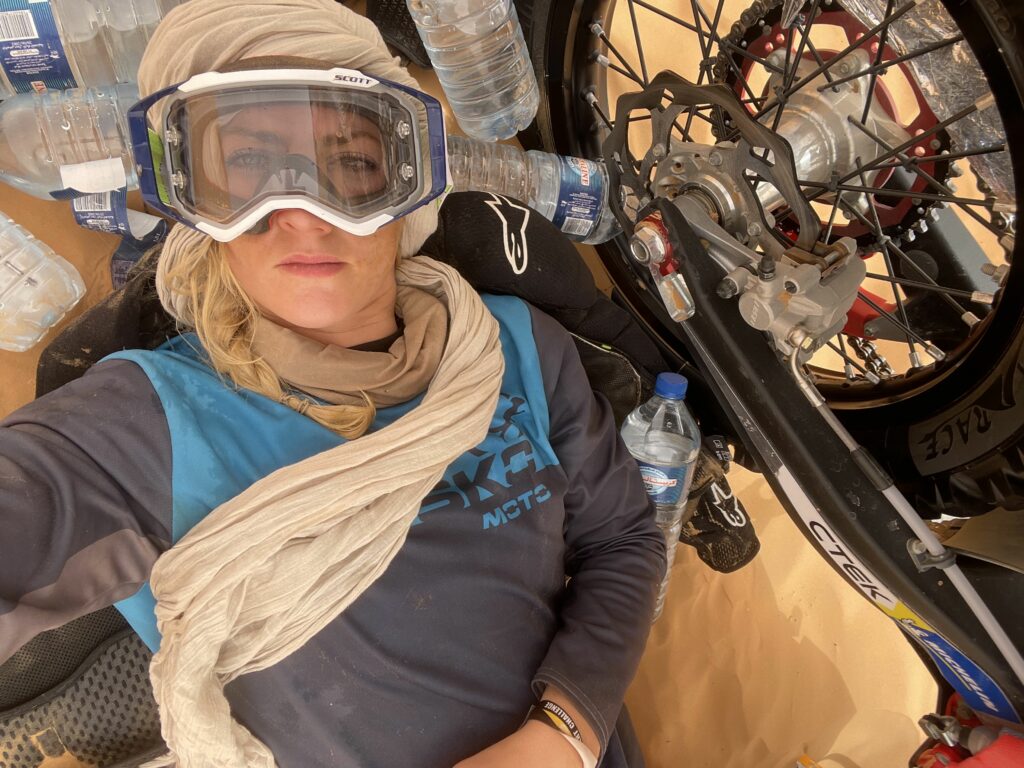
Can you tell us a bit about those two days of being stranded?
Well I was in the thick of things and I realized it was half past five, and it was going to be dark in about 45 minutes – pitch black.
I was completely on my own, in the middle of the sand dunes, kilometers after kilometers from anything – so I went right into survival mode.
The bogeyman is totally real for me, so I knew was gonna be terrified alone like that; I got my survival kit out and I took extra electrolytes, all my vitamin D things to help me physically.. I also worked out exactly what was gonna help me, how long everything was gonna last, figuring I could have something now and something about 1:00 AM and then something in the early hours of the morning. It wasn’t enough to what my body needed based on the fact that I’d been riding 11 and a half hours, but at least everything could be timed out.
I spent about half an hour collecting firewood, making sure that I never let my bike go out sight – it’s crazy out there, you can get disoriented so quickly. I also took everything off, down to my base layers and let them air dry in that last 45 minutes of sunlight so that I didn’t go into the evening wet with sweat.
A little fire pit was dug later with my head torch around my neck – knowing there was no way it was gonna last all night – and I had laid everything out exactly where it needed to be and shielded my little area a bit with the sand.
In the last 10, 15 minutes of light, I got the fire lit and then I basically just sat there and tried to stay calm, loaded the mindfulness on – just freaking out about being on the desert my own, haha.
Oh, it was pitch black; I could hear things – there was nothing there, but in a state like that when you’re just on high alert it’s another ballgame – but I knew the fire, it was a comfort.
I focused on the fact that I had a fire and animals weren’t gonna come near me cause animals don’t like fires.
After a bit the wind started to pick up, which I found really scary, cause the sand is blowing everywhere and it’s incredibly loud. I put my earplugs back in so I could just try and stay calm by not hearing the wind. It helped me kind of process that.
The whole thing that night was pretty routine; just sort of lay there and try to snooze and have a little nap and then throw more wood on and have a little nap again, trying to focus on how noisy the fire was , etc.
Closing my eyes cuz helped me in processing the fears, trying to rationalize. And you know what?I was okay; I was nice and warm. I was safe. I had a fire and the organization know where I was. My bike sat there pinging every 30 seconds and I got picked up in the middle of the night ( which was awesome) by the sweeper truck.
And they got me back to the bivouac at 3:30 in the morning, my mechanics immediately jumping on my bike and me heading to bed until the bike was fixed two and a half hours later.
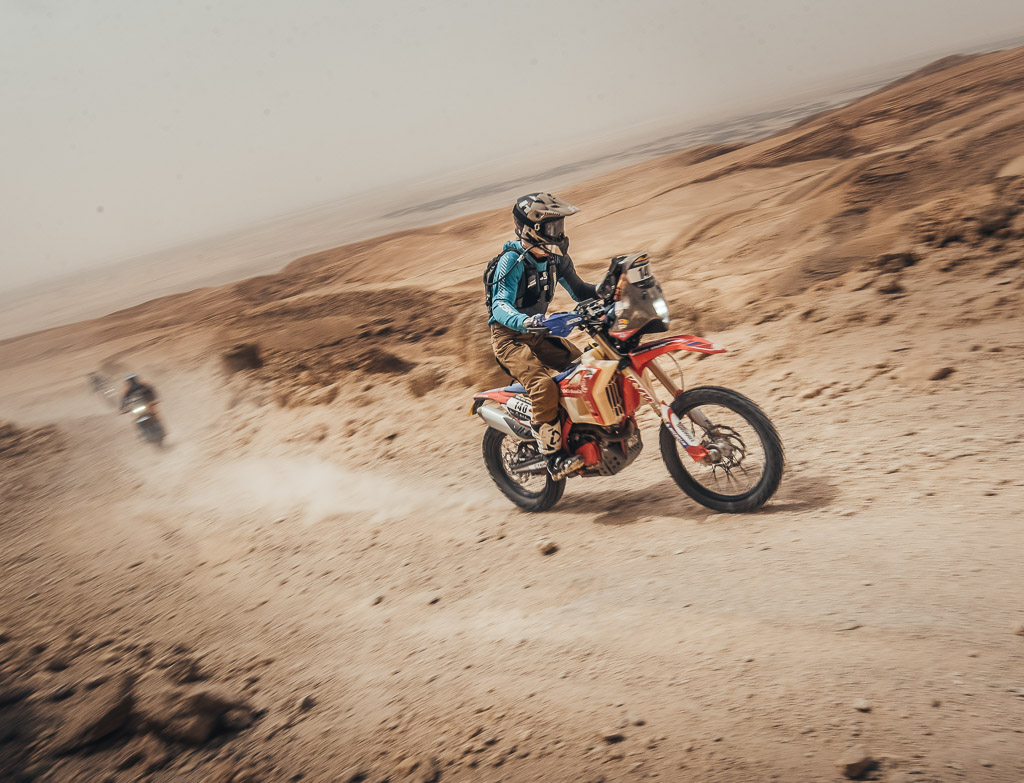
Back out into the desert I went; about four hours later, the bike went wrong again – which really sucks but it happens.
That was the second time being stranded, but there were loads of vehicles going past and they were carrying extra water and food, to give to us motorbikes – partially an organizer thing, partially compulsory of the drivers, and all because we are so vulnerable as motorcyclists. Like you can’t carry more three liters on a bike out into the desert.
So they threw water and food at me as they went past, they were being absolutely awesome.
Four and a half hours into the day, and I couldn’t make any shade because the sun was so high in the desert and I was next to my bike (which I couldn’t get to stand up anyways), By about half two, some drivers stopped and helped me get my bike upright with a piece of wood that they had in their car. And then I was able to make a little bit shade.
I put my emergency blanket over the bike and everything else – about nine bottles of water and the food.
People were giving it and it was all quite exciting. I was watching the competitors like all over the place, coming through the sand, dunes – all the different vehicles.
And then I started to really quickly deteriorate; it was 45 degrees heat, with no shade for most of the day. Despite doing everything that I had in my power, my body started to go downhill – and after about seven hours out there, I realized that I was starting to wobble and it felt like someone had a stick and was just going bam, bam on my head.
Worst part, two days ago someone had died because of the exact same thing and they didn’t call for help. I tried calling for help, but my security system didn’t seem to be working – so I tried again and it was then that I realized that I couldn’t even walk around to my bike to hit the button.
I crawled to the side and that’s when the doubting thoughts came in, all like, “I’m not an emergency. I haven’t crashed. I’m not bleeding. I’m just feeling really hot in the desert. This is ridiculous.”
Took me like three goes to actually press it for the five seconds that would – nothing happened.
And at this point, the wind had really picked up to the point that I’d been lying in the fetal position next to my bike with my little scarf around my head, trying to make a pocket of air so that I could breathe more than sand.
Suddenly I hear the helicopter and the sound of that helicopter just sends me into a fit because I can hardly move – I get the heebie-geebie’s just thinking about it.
I roll over and I see ithe helicopter do a big circle around me and I try to like move and wave.
And then it flew away.
Obviously it can see me, it’s got my GPS location and it can see my motorbike, but still; in that moment my world kind of died a little bit and I had probably the worst panic attack I’ve ever had in my life.
Maybe about 10 minutes later I hear this voice and a hand on my back – scared the life out of me..but basically the closest the helicopter could find to land was 500 meters away.
That meant this poor paramedic (he’s an absolute hero) had to like drag/carry/lift me 500 meters through the sand dunes, leaving everything else behind – my bike, my rucksack (which had my passport and all of the stuff that I had to carry) – priority was getting me in the helicopter.
They got me back to the bivouac and they were scared. They have since told me that they were terrified when they found me, that I was really close to the edge.
My sodium levels in my blood was dropping, causing my organs to expand – that’s what was causing the headache- and if they didn’t catch it when they did, then it would have been fatal or at the very least caused brain damage.
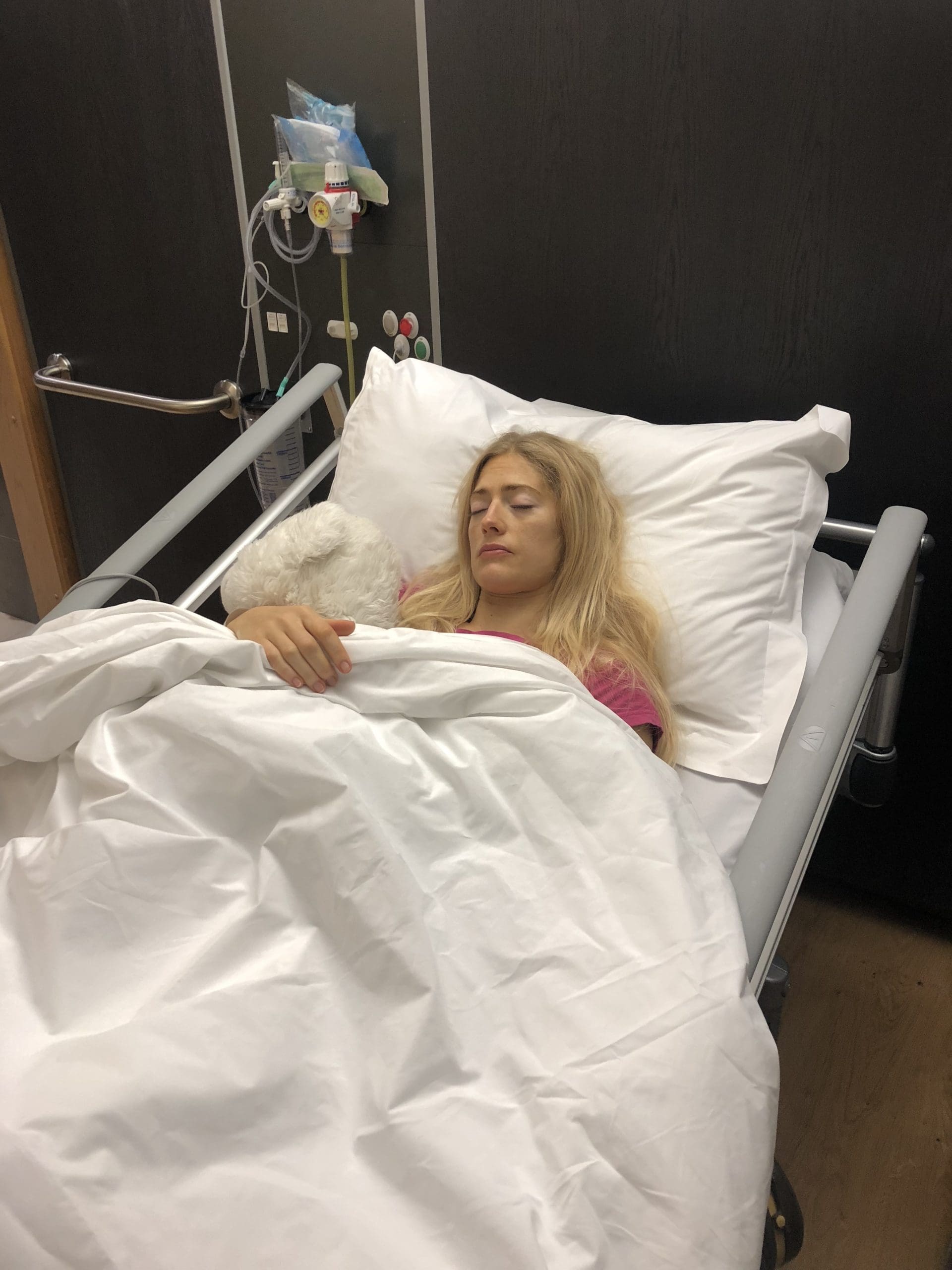


So they put me on the drip, and then another drip. I had three drips in the end, and it was the weirdest feeling, being aware and lying in the tent with like four paramedics running around you panicking – and the whole while you’re trying to stay calm, but you’re like, they’re not calm. Why are they not calm? Why am I not calm?
That following night my bike was recovered but I needed to stay back and recover. So, I tried to sleep with horrific night terrors, being absolutely terrified of going back out there, thinking to myself, “that’s it, I’m done. I’ll wake up in the morning. And I’ll, I’ll retire. I’ve just bitten off more than I can chew.”
I wake up in the morning and I’m back; I’m like, “where is my bike,” haha!
After that, I went back out into, into the desert, which happened the day the wind storms picked up with 85 kilometer winds; that day, the race ended up getting canceled mid-morning, but we were already out there, trying to get ourselves out of the desert in a sand store where you couldn’t see anything. You are trying to follow the road book and follow tracks, but there are no tracks – your own track disappeared within two minutes from the wind.
Anyway, yeah- we made it back, but there were moments where I was literally trying to do 10km at time. I couldn’t think about the fact that I had 350km left, so I’d say to myself, “ I’m just gonna do the next 10km,” or, “I’m gonna just make the next check,” or “I’m just make it to lunch…and if I make it to lunch, you know, I can always retire at lunch.”
Then I’d make it to lunch and I’sd be like, “you know what? I can do a bit more. Let’s go, let’s keep going.”
Bit by bit like that. It was brutal – but if it wasn’t brutal, it wouldn’t be anywhere near as satisfying.
I think there’s definitely a very small amount of people that are not afraid to be in that state of mind and push themselves that hard. I think that’s, what’s so inspiring about raids like this, to be honest.
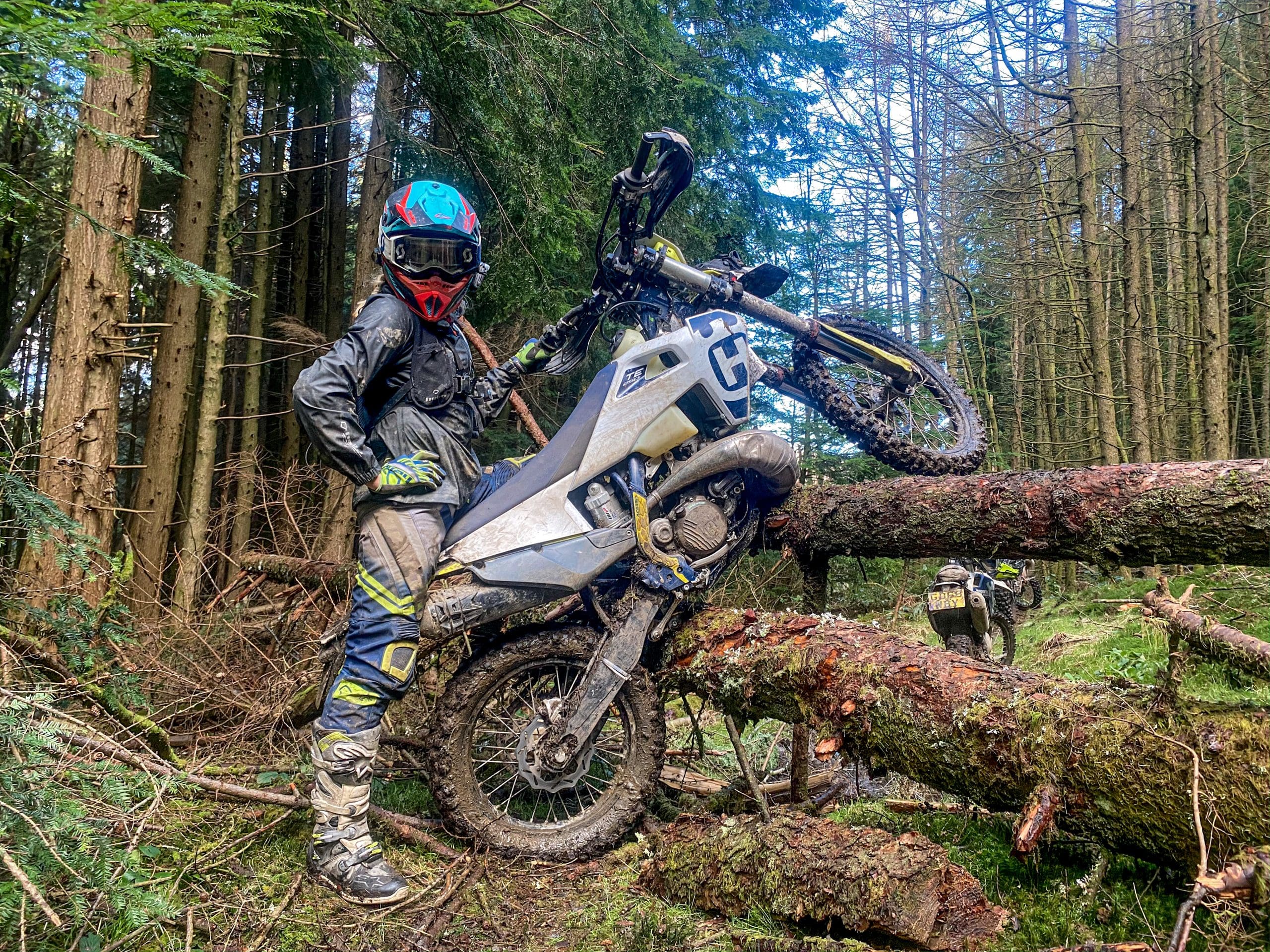


Did you have any professional influences inspire you into riding (and then the rally raids)?
The first race I did was a result of Paul Bolton, a hard enduro rider. I rode with him out in Spain at Touro trail. Just did a bit of training day with him.
After that training day he Whatsapped me and was like, “you need to enter Valley’s extreme,” which was a hard enduro in the south of Wales in the UK.
I just like, “no way. I’ll die,” but he kept chipping away at me to the point where I was like, “we’re gonna do the practise day on Saturday – and then we’ll watch the race.”
Me and my husband did the practise day, then we decided to just make a lap.
It was actually amazing, then all the team there decided we should just fricking get the thing done and enter the race.
We finished a lap and a half, which was a silver finish – and I was like “this is insane.”
I remember sitting at the start line and five meters in front of me was a thigh-high, plastic drain pipe that we had to like launch straight over this big thing right off the start line.
There’s hundreds of people in the crowd watching, and all the other bikes next to me; I’m the only girl (cause you’re very often the only girl, unfortunately, in these things).
The whole time, I’m like, “I’m gonna die. Why am I here?”
Race starts, and I rode straight into this pipe, bust it perfectly over the top, carried on chipping away, overtook people. And yeah, I was really pleasing how I did.
That was the seed of wanting to do more of these races – and before we even got home to our house, my husband and I had signed up for Redbull Romania on the drive home. There’s no way we could have done red bull Romania to that point, but we had a year to train and we were gonna train.
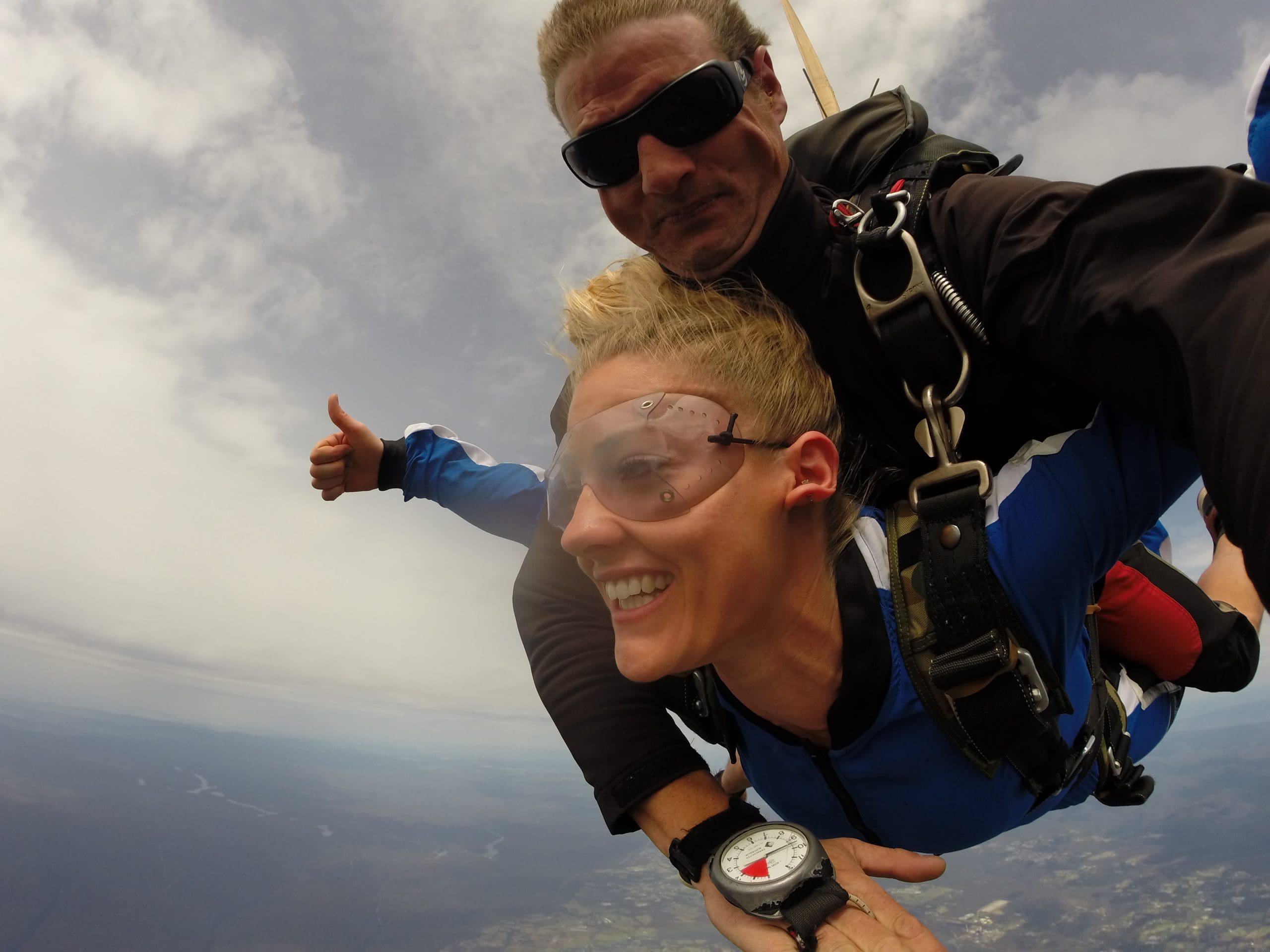


Amidst all this, you’re still an inspiring speaker in the UK for mental health – for all communities or more rider-focused crowds?
Both.
I have spoken to so many schools in the UK in free workshops under the #becauseICan tag – six and a half thousand students since the end of last year.
I also speak to company brands – GE aviation, that’s one; I’ve also done quite a few corporate speaking events now where it’s not a biker audience at all.
In the end everyone can relate to what I’ve been through; at the moment I’m trying to find a sponsor for my schools program to help me fund stuff because I’m a little person trying to do it and I’d like to be able to do more.
So if I can get a brand to help me with the costs of it, it makes it a lot more feasible because every school I do…it just blows me away how much they get from it.
And I somehow manage to get through to the most vulnerable kids that the teachers have been banging their heads against wall for three months about – and I’ll make more progress in an hour than they have in three months. The teachers literally say that to me.
It’s insane, but I think my unique story is pretty cool to a kid.
It helps that I rock up with a motorcycle in the room, and I also speak their language because I’ve got social media and I get them really hooked into the story and the journey.
And while their guards are down, they’re interested in some of these mindfulness techniques and tools
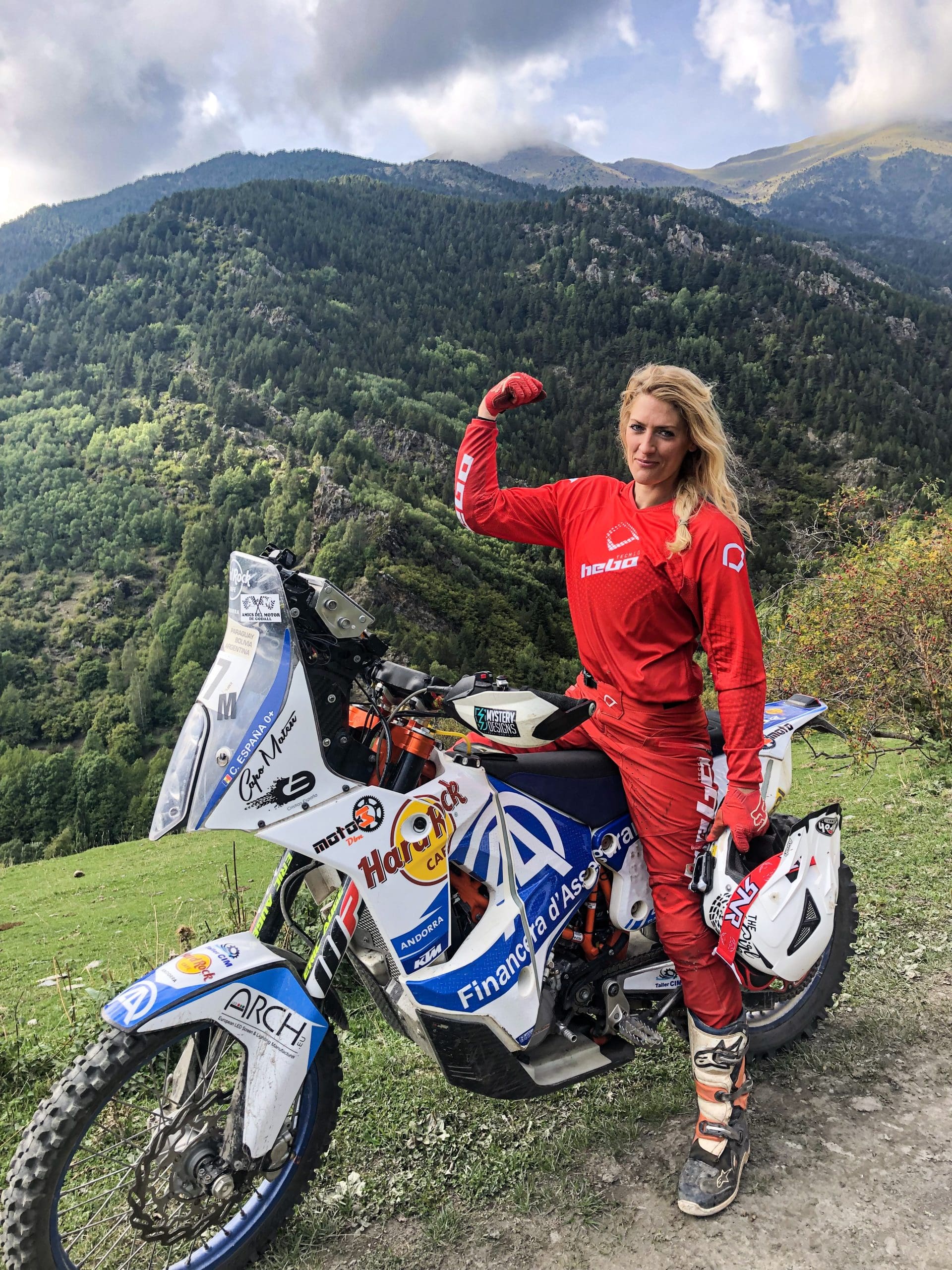


What have you got in the garage right now?
So, I have my Husqvarna TE250I hard enduro bike… I’ve got Bear, my trials bike.
I’ve got a 1250 Pan America and I’ve got a Dyna Street – both Harley-Davidson, which is just shy of 1700cc. That’s my original, his name is Thug, haha!
I’ve also got a Honda CRF 450 RX rally bike…and I’m on the hunt at the moment for a new 450 Husqvarna to become my future rally bike.
Any parting words you might be able to share with other young women starting out in the motorcycle industry – or anybody looking to swing a leg over?
Just being mindful when you challenge yourself – it’s so important, and has been so useful for me in hard enduro.
That’s the thing about hard enduro – not enough women are doing it.
If I can show girls that girls can do it and get more girls out there, that’s really cool through my channels; and also…a lot of guys will look at her and be like, “well, she can do it. She’s a girl. Maybe I should give it a go.”
So it kind of inspires everyone to have a go, which is pretty cool.


